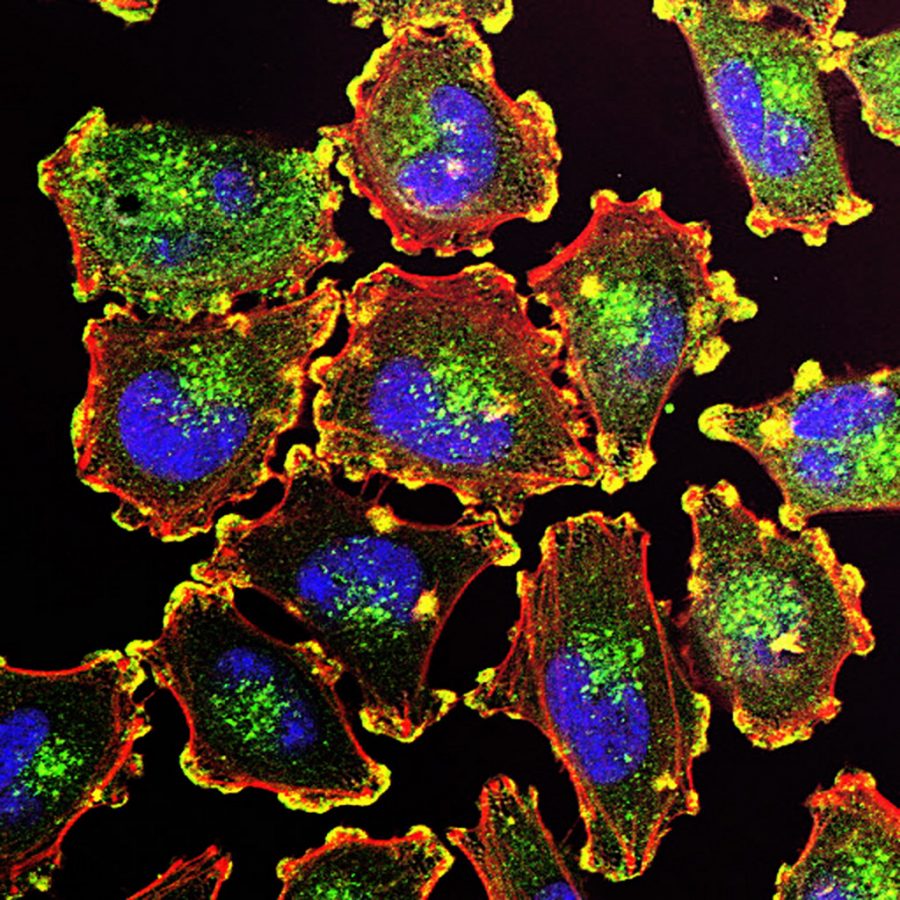Promising New Melanoma Vaccine
Researchers working at the University of Dallas and the Scripps Research Institute in La Jolla (CA) may have just made a huge advancement in treating aggressive tumors, with huge implications in the field of oncology.
The team, co-led by Scripps chemist Dale Bolger and Nobel Prize winner Bruce Beutler, found that a molecule called Diprovocim, a so-called “adjuvant” which binds to immune receptors to stimulate the body into response, could be added to vaccines, effectively training the body to respond to tumors, just as a normal vaccine would train the body to respond to new pathogens.
In their experiment, the team separated mice suffering from a “notoriously aggressive melanoma” into three groups: one as a control, one to receive Diprovocim, and one to receive another adjuvant. 54 days later, all had died in the control group, 25% survived with the other adjuvant, and every single mouse who received Diprovicim survived- something that it seems can be extended to humans as well. “This co-therapy produced a complete response- a curative response- in the treatment of melanoma,” Bolger summarized.
The best part is that Diprovocim is “easy to synthesize in the lab and easy to modify”, meaning that it could ostensibly be in widespread use, if the vaccine is successfully extended to humans and approved by the FDA. Another upside is that researchers found the tumors impossible to re-establish in the mice, because they were already vaccinated against them.
The vaccine, which requires two shots at seven days apart and does not have to be injected directly into the tumor, should now move into a pre-clinical phase where it will be tested in other types of cancer therapy. Hopefully it will soon be able to be applied to humans. About 1 percent of skin cancer diagnoses in America are melanoma, and more than 9,000 people die of it each year. This may just be the tip of the iceberg, as well: if this gets extended to other cancers, as is possible, millions could be saved.
The importance of this finding cannot be understated. We’ve been struggling for a cure to cancer forever, and this might just be our chance. Will it work? Only time will tell, but we should watch its development closely.
SOURCES
Cohut, Maria. “New Cancer Vaccine Is 100 Percent Successful in Mouse Model.” Medical News Today, MediLexicon International, 10 Sept. 2018, www.medicalnewstoday.com/articles/323017.php.
“Experimental Vaccine-Adjuvant Combination Eliminates Melanoma in Mice.” Sci News, 13 Sept. 2018, http://www.sci-news.com/medicine/melanoma-vaccine-adjuvant-06402.html.
Gollayan, Christian. “Could This Vaccine Be the Cure to Skin Cancer?” New York Post, New York Post, 12 Sept. 2018, nypost.com/2018/09/11/could-this-vaccine-be-the-cure-to-skin-cancer/.
Kassam, Zara. “Scientists Test New Anti-PD-L1 Cancer Vaccine against Melanoma.” Drug Target Review, 10 Sept. 2018, www.drugtargetreview.com/news/35232/anti-pd-l1-cancer-vaccine/.
“Scientists Test New Cancer Vaccine against Melanoma.” Medical Xpress – Medical Research Advances and Health News, Medical Xpress, 6 Sept. 2018, medicalxpress.com/news/2018-09-scientists-cancer-vaccine-melanoma.html.
“Scientists Test New Cancer Vaccine against Melanoma.” TSRI – News & Views, Scripps Research, 6 Sept. 2018, www.scripps.edu/news-and-events/press-room/2018/20180906-melanoma-cancer-vaccine.html.


